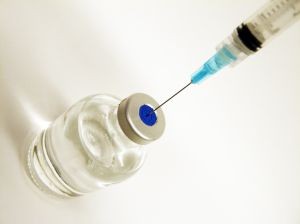For the past decade, it has been impossible to read Sports Illustrated or ESPN without being told about the benefits of testosterone. The drug companies have claimed that taking testosterone replacement therapy can help increase cardiovascular function, increase one’s libido, boost energy, cure minor depression, curb weight gain and basically make aging men feel like they did in their 20s.
 As discussed in a recent news article from UPI, the first actual clinical trials are not demonstrating these benefits claimed by drug companies. This is not surprising, since the claims were not supported by the United States Food and Drug Administration (FDA), nor has testosterone replacement hormone been approved to treat people for what drug companies are calling “low t.” However, the reason they are able to prescribe testosterone, which comes in pills, deodorant, gels, skin creams, sublingual patches, and a variety of other delivery methods, is because they are able to take advantage of a loophole in FDA regulations that allows for what is known as off-label use.
As discussed in a recent news article from UPI, the first actual clinical trials are not demonstrating these benefits claimed by drug companies. This is not surprising, since the claims were not supported by the United States Food and Drug Administration (FDA), nor has testosterone replacement hormone been approved to treat people for what drug companies are calling “low t.” However, the reason they are able to prescribe testosterone, which comes in pills, deodorant, gels, skin creams, sublingual patches, and a variety of other delivery methods, is because they are able to take advantage of a loophole in FDA regulations that allows for what is known as off-label use.
In this latest study, which involves a review of a great deal of clinical data, we see that there is no beneficial effect on any of the symptoms outlines by the drug companies. In other words, if you treat a man who has a so-called low testosterone level by providing testosterone hormone, the level of his testosterone might increase, but there is no improvement in any of these symptoms he was tying to help by taking testosterone in the first place.
While it would be tempting to say that taking testosterone hormone does nothing, that would not be entirely accurate, since, as our Boston testosterone injury lawyers have seen in far too many cases, testosterone hormone can cause an increased risk for heart attacks and strokes.
This particular study involved the use of around 160 randomized clinical trials that had been conducted in the period ranging from 1950 to 2016. The study looked at any effects on one’s sexual function, mood, and cognitive function, and was compared to a results of a placebo and a control group. The study did not show any consistent benefits in any of these clinical studies conducted over that last roughly 70 years.
You might be wondering why there are so many studies done decades ago if testosterone replacement therapy is a relatively new thing. The answer is that it is not a new thing. Testosterone replacement therapy was studied as early the 50s and first approved by the FDA in the 1970s. However, it was never approved to treat aging men with who are experiencing the normal symptoms of male aging. Instead, it was approved to treat a very rare condition known as hypogonadism. With this condition, normally young patients have an extremely low level of testosterone do to a gland defect that is causing developmental issues in the patient. This was the condition for which testosterone therapy was approved and is still the only condition for which the drug can actually be labeled.
If you are the victim of Massachusetts product liability, call Jeffrey Glassman Injury Lawyers for a free and confidential appointment — (617) 777-7777.
Additional Resources:
Benefits of testosterone treatment for ‘low T’ not seen in clinical trials, study says, September 23, 2016, By Stephen Feller, UPI
More Blog Entries:
New Total Knee Replacement Technology Helps Surgeons and Patients Alike, Nov. 25, 2015, Boston Hip Replacement Lawyer Blog
 Product Liability Lawyer Blog
Product Liability Lawyer Blog

